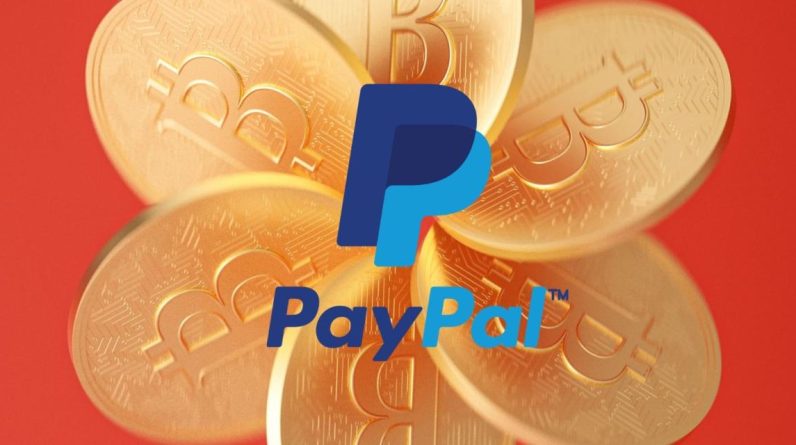
How PayPal secures transactions
Imagine you are an online merchant, selling an amazing product or service. When customers complete a purchase through your virtual store, transaction security is a top priority. This is where PayPal comes to your rescue, ensuring every transaction is protected and secure.
PayPal is like the gatekeeper of the financial world, implementing multiple layers of advanced security to protect you and your clients’ sensitive information. First and foremost, PayPal uses 128-bit SSL (Secure Socket Layer) encryption to encrypt all data transmitted through its platform. This means that even if hackers manage to intercept your information, they will not be able to decipher it.
In addition to encryption, PayPal also utilizes an advanced fraud detection system. Intelligent algorithms monitor account activity in real-time, flag suspicious transactions and protect you from fraudulent activity. If PayPal detects any unusual activity, they will immediately block the transaction and alert you, giving you the opportunity to take precautions.
One of PayPal’s main advantages is that its technology is token-based. When customers complete a purchase using PayPal, they don’t have to share their financial details directly with the merchant. Instead, PayPal creates a unique token that represents their payment information. These tokens are then used to complete transactions, ensuring the security of sensitive customer information.
PayPal also strengthens its security with two-factor authentication (2FA). When enabled, it adds an extra layer of protection by requiring users to verify their identity via a code sent to their mobile device or a physical security key. Thus, even if your password is compromised, hackers cannot access your account without this additional authorization code.
Additionally, PayPal adheres to the highest security industry standards. They are PCI DSS (Payment Card Industry Data Security Standard) certified, which means they have implemented strict security measures to protect cardholder data. PayPal is also regularly audited by independent third parties to ensure that their security standards remain current and effective.
With all of these security measures in place, you can be sure that your PayPal transactions will be protected from fraudulent activity and unauthorized use. PayPal continually invests in the latest security technology to ensure that your information remains safe in an ever-evolving digital world.
Risks and security measures in place
In today’s digital era, the security of online transactions is very important. PayPal, as one of the world’s leading payment service providers, attaches great importance to security and has implemented various measures to secure transactions.
A strict account verification process ensures that legitimate users make transactions. PayPal verifies identity in a variety of ways, such as phone numbers, email addresses and other personal data. Once the account is verified, users can connect their payment methods safely and easily.
One important layer of security is high-level encryption. PayPal uses advanced encryption technology to protect sensitive information such as credit card numbers and bank account details. This encryption makes it difficult for hackers to access or steal sensitive financial information.
Additionally, PayPal has a sophisticated fraud prevention system. This system uses machine learning algorithms to analyze transaction patterns and identify suspicious transactions. If a transaction is deemed high risk, PayPal may require additional verification or block it altogether.
PayPal also offers purchase protection to users. If users do not receive the purchased goods, are damaged, or are not as ordered, they can submit a claim for a refund. This protection provides peace of mind and reduces the risk of fraud or financial loss for users.
As an additional layer of security, PayPal runs a 24/7 transaction monitoring program. A team of security specialists monitors account activity in real-time to detect and prevent suspicious activity. If suspicious activity is detected, PayPal may take immediate action to protect user accounts.
Furthermore, PayPal adheres to strict industry security standards and regulations. This includes the PCI DSS (Payment Card Industry Data Security Standard) standard, which requires organizations to implement strong security controls to protect cardholder information.
In conclusion, PayPal has implemented multiple layers of security to protect user transactions and information. From the account verification process to the fraud prevention system, every step is designed to ensure security and peace of mind for users. By continuing to invest in innovative security measures, PayPal strengthens its reputation as a secure and trusted payment service provider.
Best practices to prevent bank account hacks through PayPal
When you make transactions through PayPal, you can rest easy knowing that your transactions are protected by a strict set of security measures. This process begins when you enter your financial information, which is encrypted and stored securely on PayPal’s servers. Next, when you make a purchase, PayPal will use tokenization technology to create a unique token that represents your credit card information. This token is used to process payments without revealing your actual credit card number, which adds an extra layer of security.
Additionally, PayPal also uses an advanced fraud detection system that monitors your account in real-time for suspicious activity. If the system detects unusual activity, PayPal may freeze your account and ask you to verify your identity. This helps prevent criminals from using your account to commit fraud.
PayPal also offers comprehensive buyer protection, which means that if you don’t receive the goods or services you purchased, PayPal will help you get your money back. This gives you added peace of mind when shopping online.
However, it is also important that you take steps to protect your PayPal account. Make sure you use a strong password and enable two-factor authentication (2FA). You should also watch out for phishing scams, where criminals try to trick you into revealing your personal information or clicking on malicious links.
By following these security steps, you can help keep your PayPal account safe and protect yourself from hacker attacks. PayPal is committed to providing a safe and stress-free transaction experience, so you can shop online with confidence.
Can my bank account be hacked through PayPal?
Possibility of Bank Account Hacking via PayPal
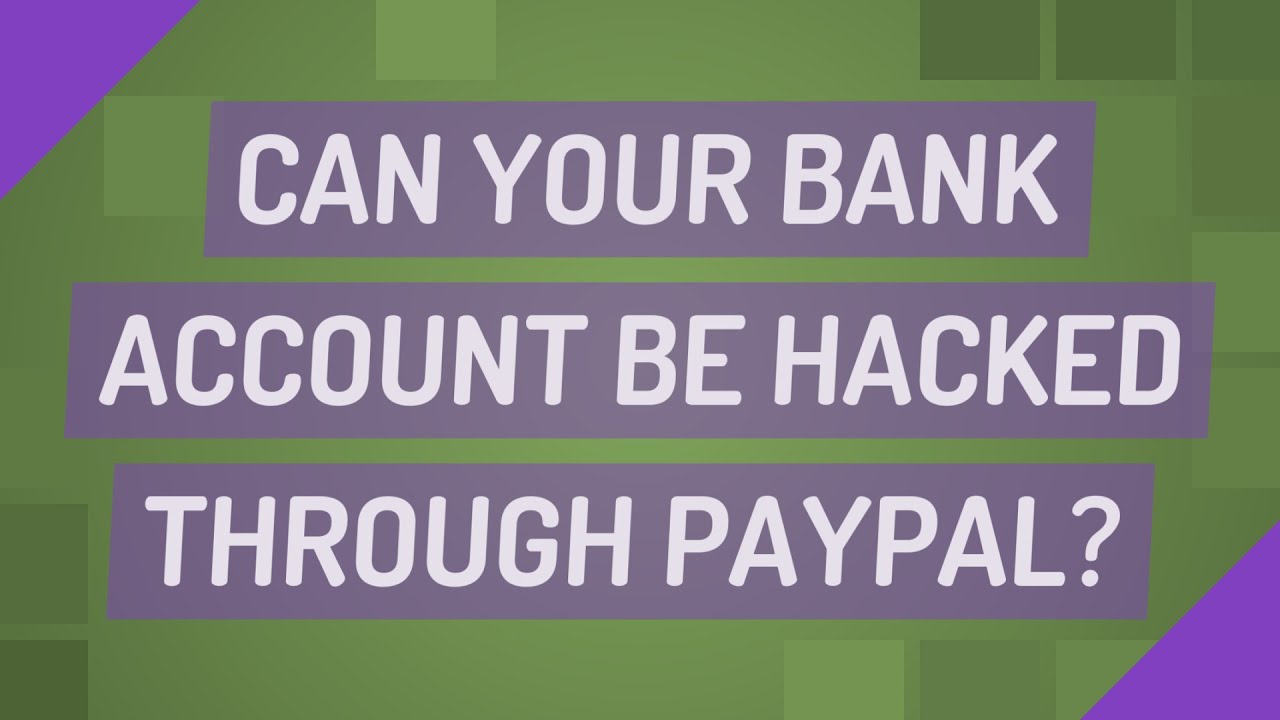
In the digital era we live in today, online account security is a top priority for every internet user. PayPal, as one of the world’s largest online payment platforms, is often the target of hacks. A frequently asked question is: “Can my bank account be hacked via PayPal?” In this article, we will discuss these possibilities and provide tips for improving the security of your PayPal account and bank account.
How PayPal Account Hacking Happens
PayPal account hacking usually occurs in several ways:
- Phishing : Hackers use fake emails or messages to lure your login information. The email usually has a link that leads to a fake login page similar to the PayPal login page. If you click on the link and enter your login information, the hacker will gain access to your PayPal account.
- Malware : Hackers use malware to steal your login information directly from your computer or mobile device. This malware can be downloaded via unsafe links or virus-infected files.
- Security Weaknesses : Hackers can exploit security flaws in the PayPal platform or related applications to gain access to your PayPal account.
How Bank Account Hacking Happens via PayPal
If your PayPal account has been hacked, hackers can try to access your bank account in several ways:
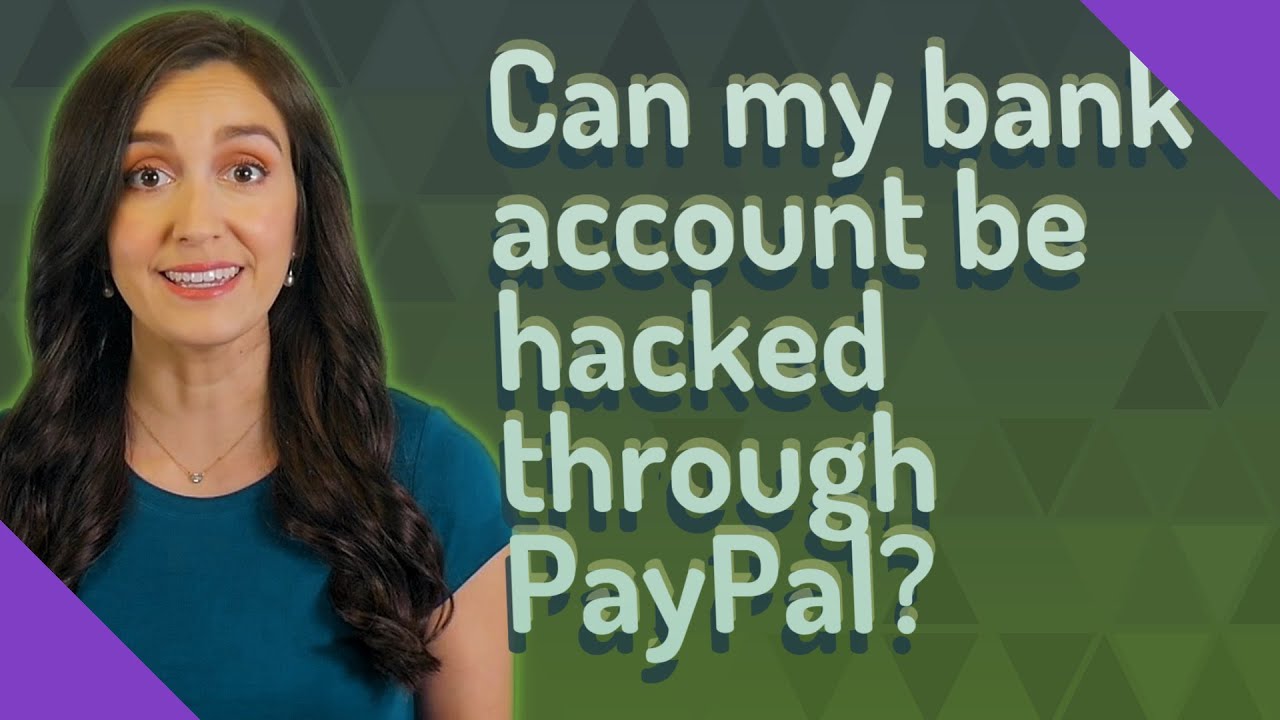
- Bank Account Link : If you have linked your bank account with your PayPal account, hackers can try to access your bank account through PayPal.
- Automatic Payments : If you have set up automatic payments through PayPal, hackers may try to change payment information to send money to another bank account.
- Use of Credit Card Information : If you have stored credit card information in your PayPal account, hackers may try to use that information to make unauthorized transactions.
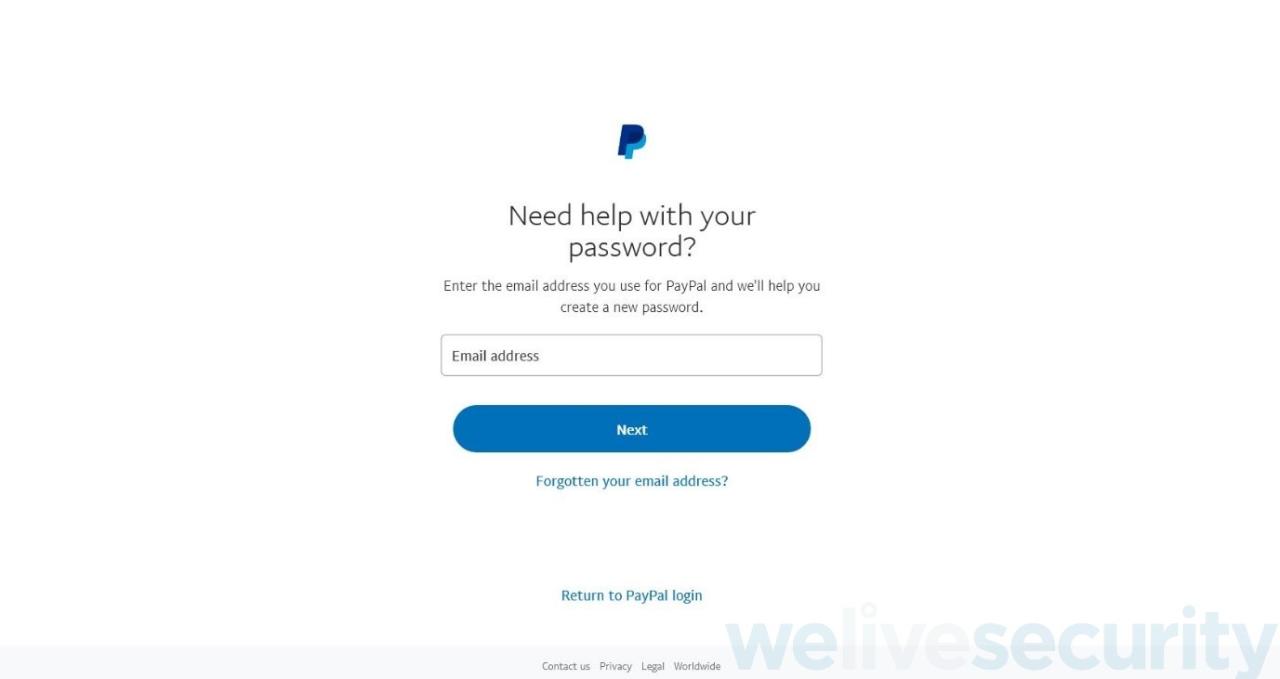
Tips to Improve Security of PayPal Accounts and Bank Accounts
To increase the security of your PayPal account and bank account, here are some tips you can do:
- Use a Strong Password : Make sure you use unique and strong passwords for your PayPal account and bank account.
- Enable Two Factor Authentication : Enable two-factor authentication for your PayPal account and bank account to increase login security.
- Update Software : Make sure you keep the software and applications associated with your PayPal account and bank account up to date.
- Avoid Phishing : Never click on unsafe links or enter login information into untrustworthy pages.
- Account Monitor : Monitor your PayPal account and bank account regularly to detect unauthorized transactions.
- Use Credit Cards Wisely : Never store credit card information in your PayPal account or bank account unnecessarily.
- Delete Unnecessary Information : Remove unnecessary information from your PayPal account and bank account to reduce the risk of hacking.
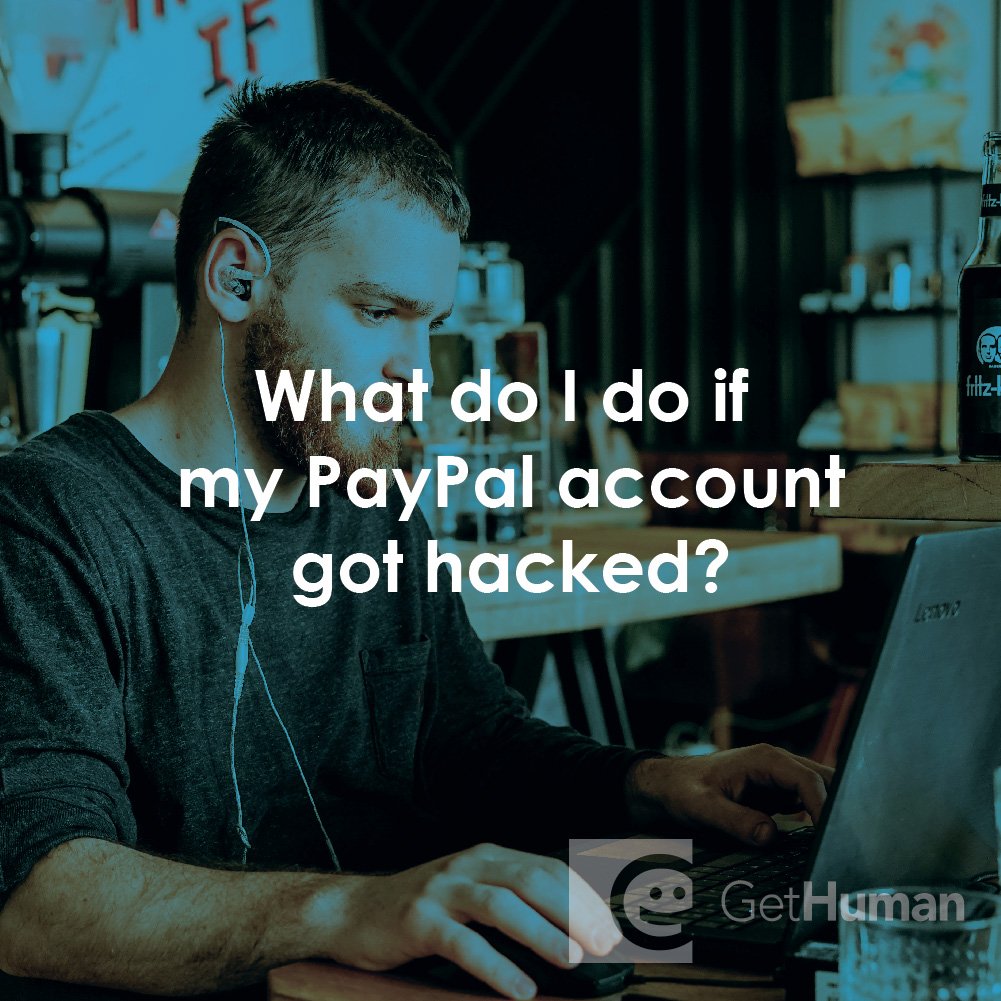
Conclusion
Hacking of PayPal accounts and bank accounts can occur in several ways. However, by increasing the security of your PayPal account and bank account, you can reduce the risk of hacking. Make sure you use strong passwords, enable two-factor authentication, update software, avoid phishing, monitor accounts, use credit cards wisely, and delete unnecessary information. By taking these steps, you can increase the security of your PayPal account and bank account and avoid hacking.
